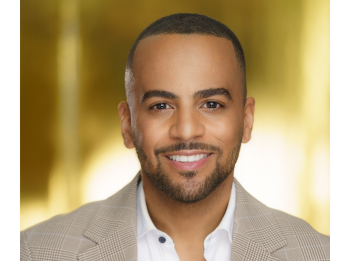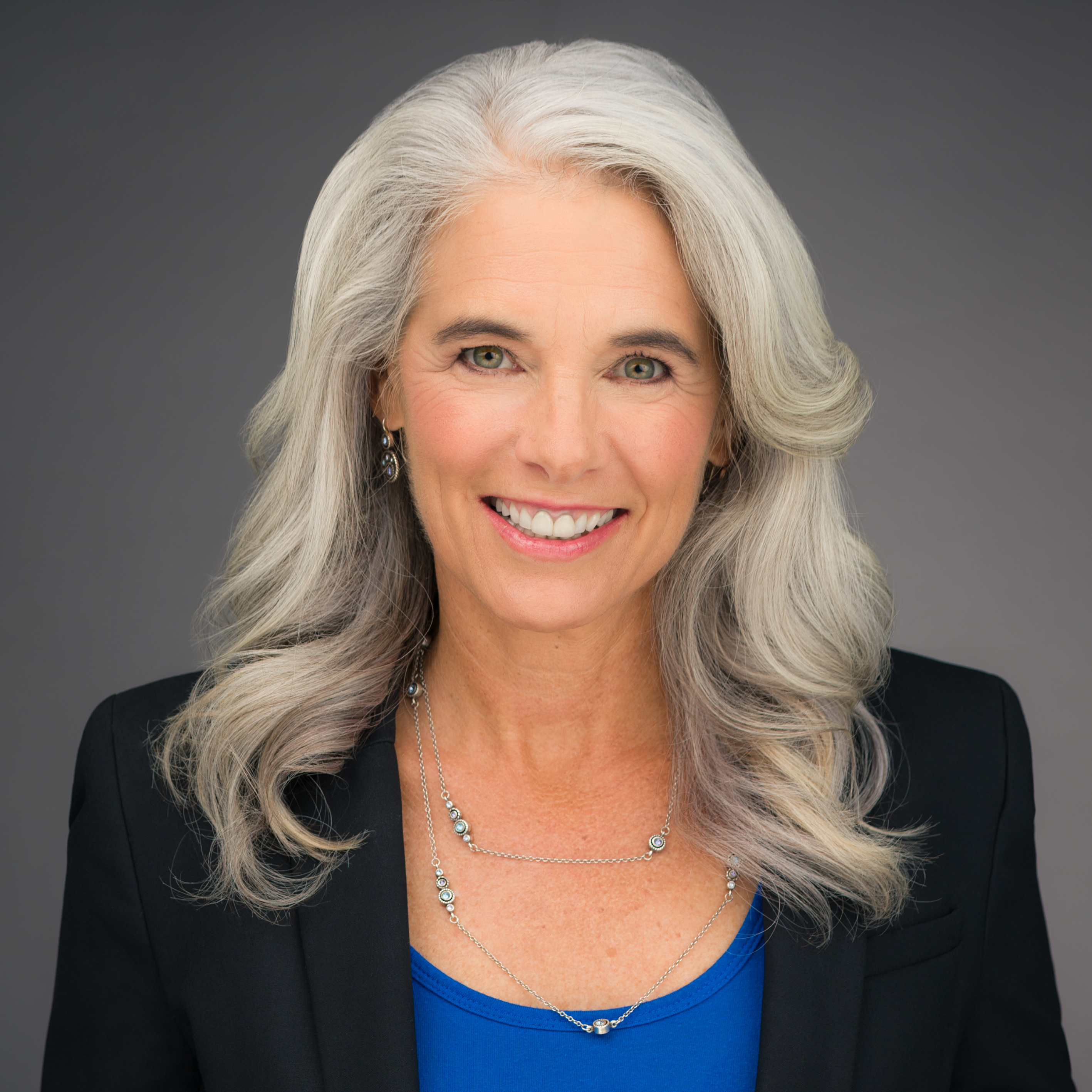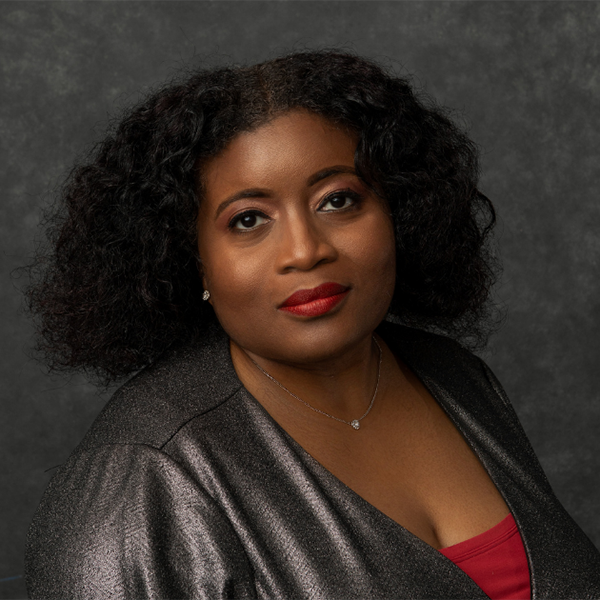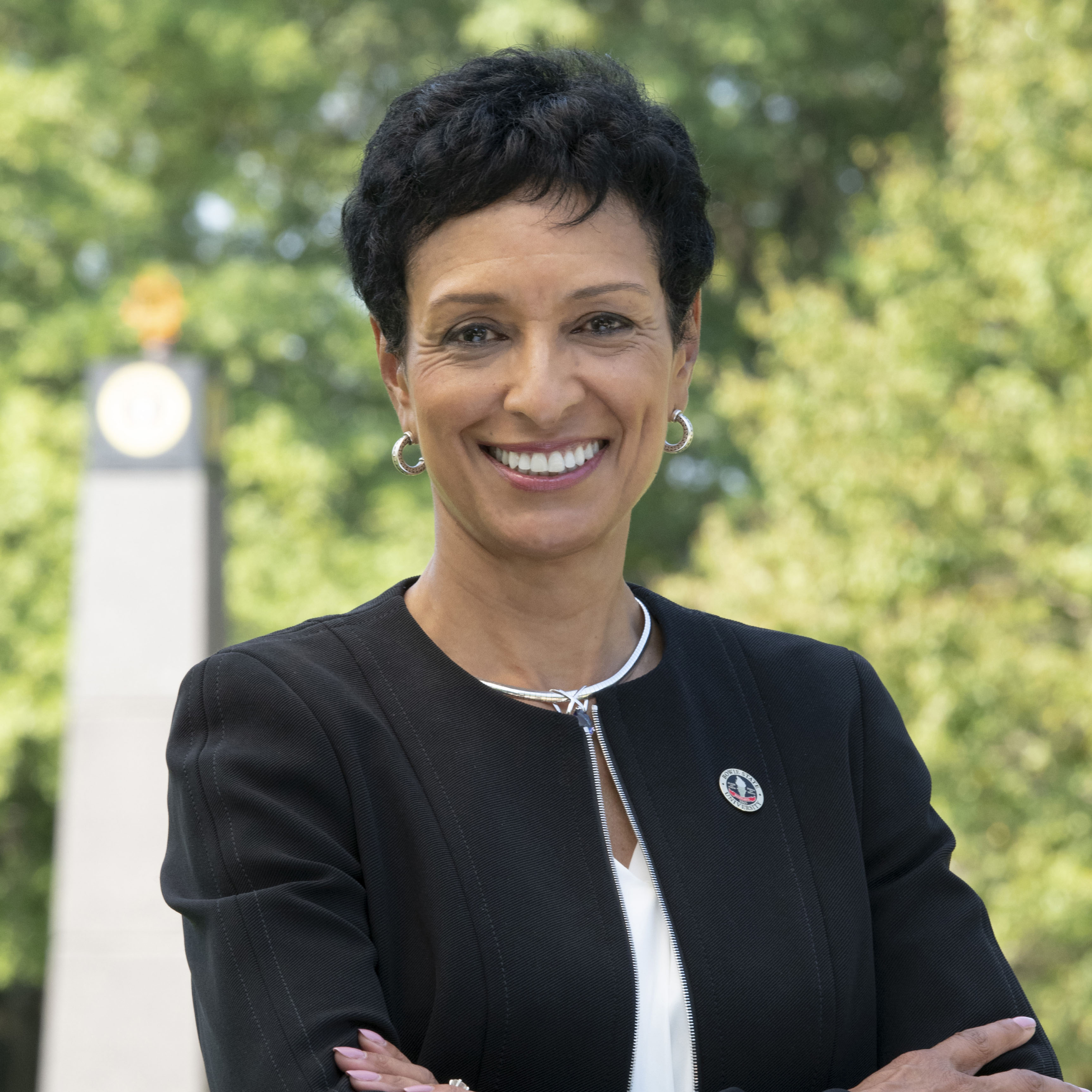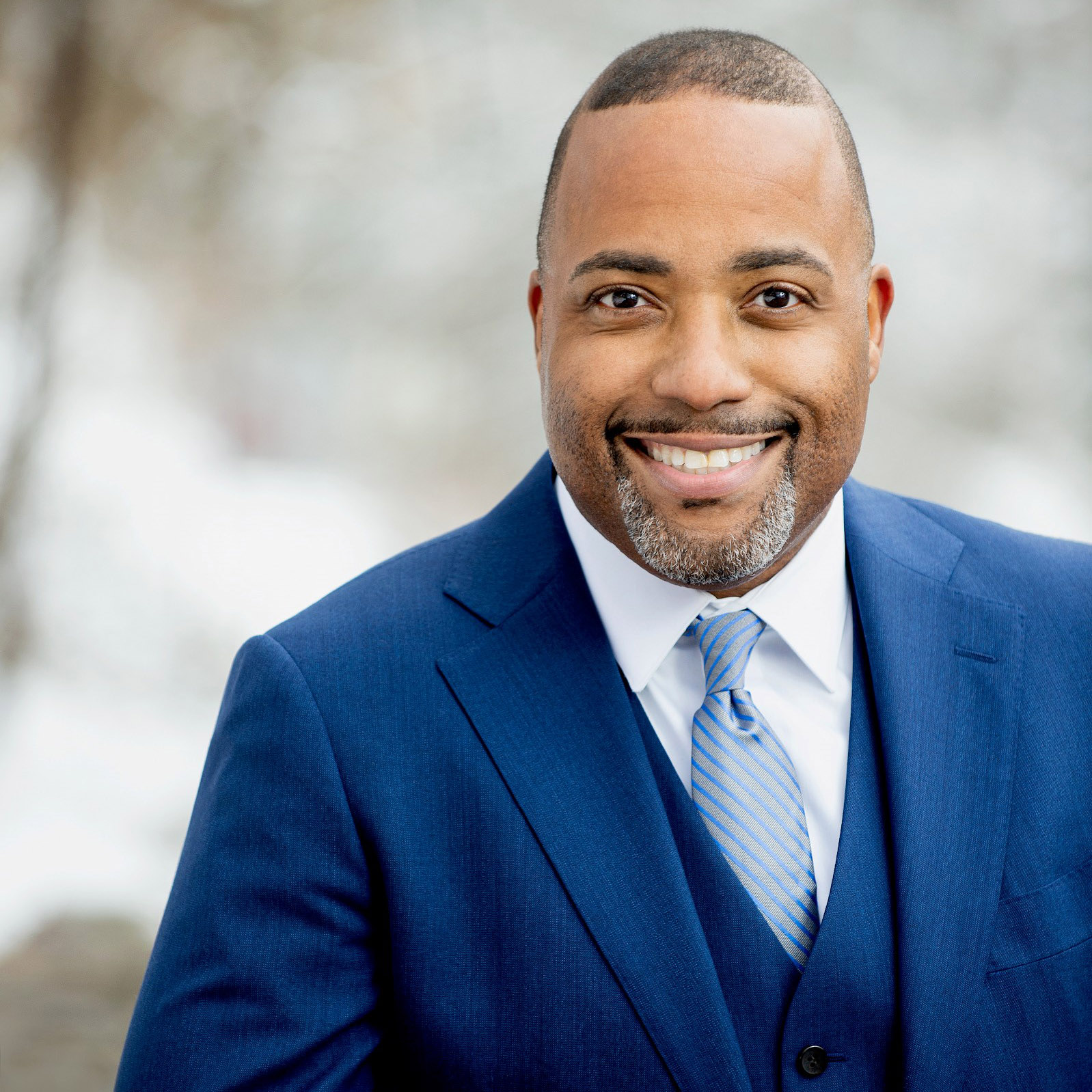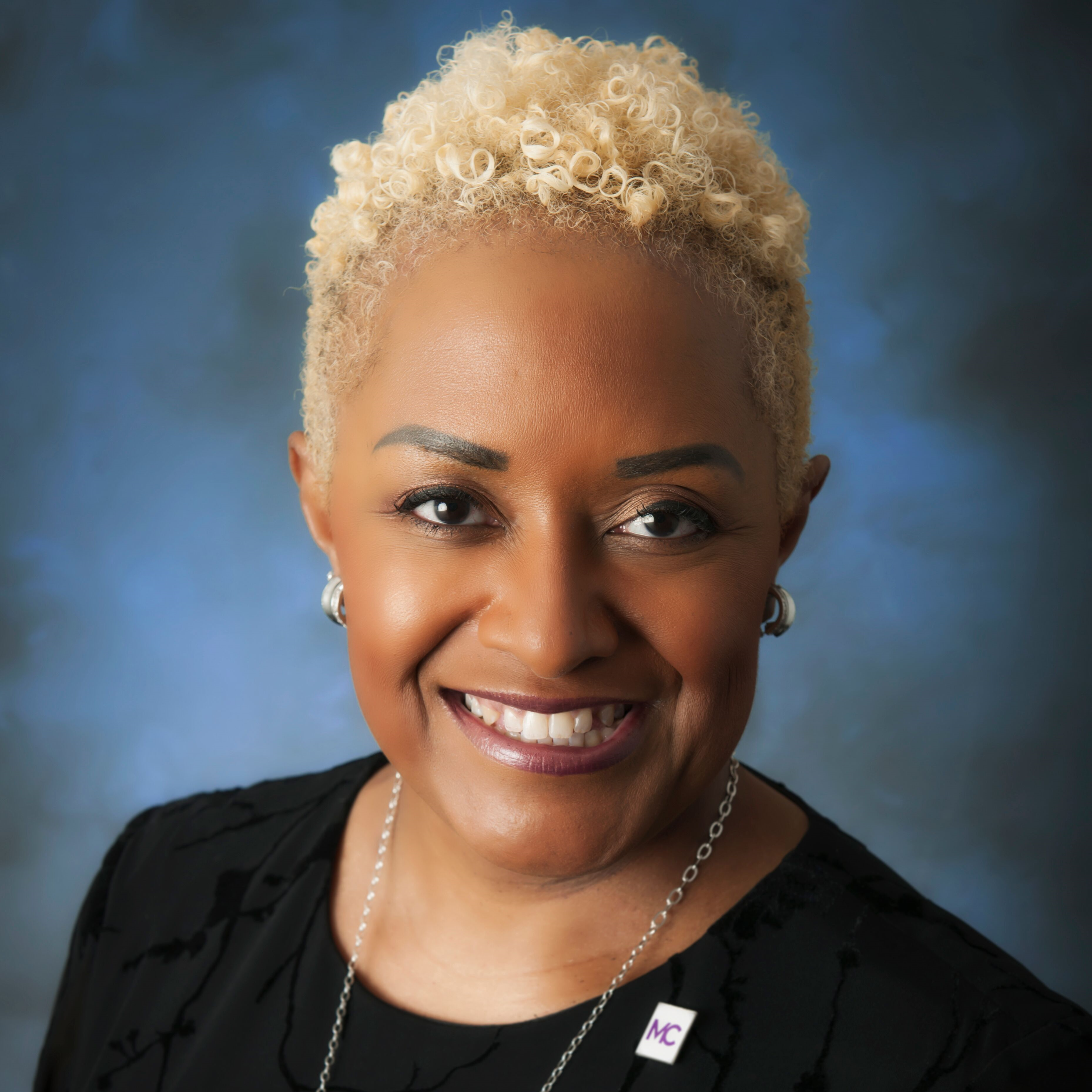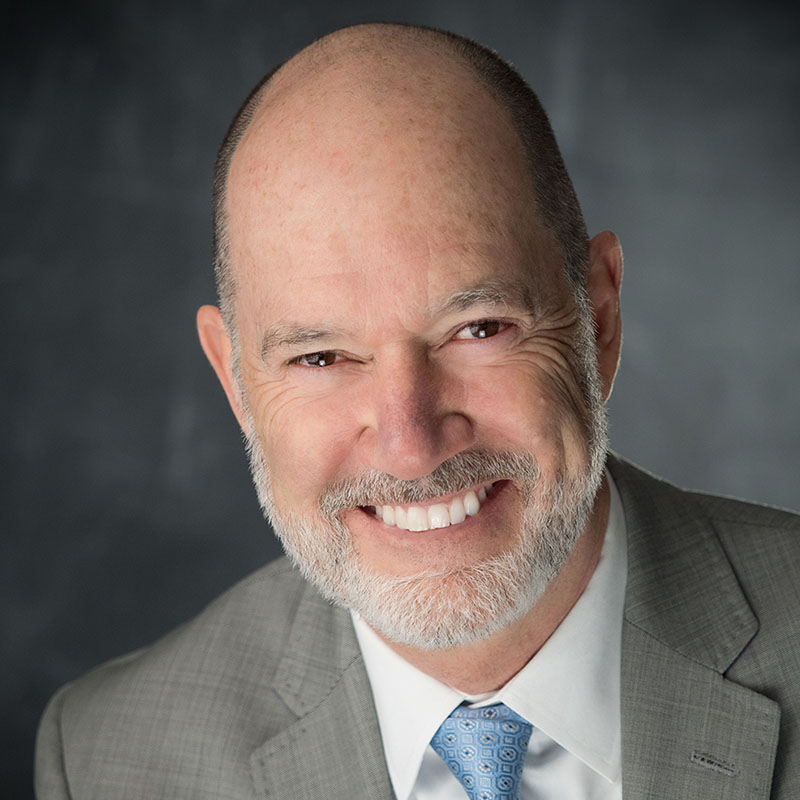The 2022 NASPA First-generation Student Success Conference, as part of the NASPA Conferences on Student Success in Higher Education, will convene scholars and practitioners from June 27-29, 2022 to discuss how higher education professionals across the academy can develop effective approaches to support and improve the outcomes of first-generation college students.
The NASPA Conferences on Student Success in Higher Education convenes the student success-focused community to engage in important professional development, exchange innovative ideas, and network with peers. You will engage with content from the Assessment Persistence, and Data Analytics Conference, the inaugural Dismantling Systemic Barriers to Student Success Conference, and the First-generation Student Success Conference in Baltimore, Maryland.
In addition to a robust selection of educational programming, the conference offers multiple dynamic keynotes, thought-provoking pre-conference workshops, exhibit hall offerings, and much more. This event is your opportunity to take a cross-functional approach to student success when it has never been more important.
Take a look at the 2021 NASPA Virtual Conferences on Student Success in Higher Education program book to learn about last year's programming and events.
Benefits
The 2022 NASPA Conferences on Student Success in Higher Education will offer innovative ways to engage through:
- multiple days of curated content facilitated by subject-matter experts from all three conference tracks;
- educational sessions and connections to presenters and attendees;
- thoughtful presentations from featured speakers to strengthen your knowledge base;
- opportunities to engage and network with other attendees across conferences; and
- an exhibit hall for real-time engagement with sponsors & exhibitors.
About the First-generation Student Success Conference
ATTEND THE FIRST-GENERATION STUDENT SUCCESS CONFERENCE TO:
-
understand the lived experiences and vast intersectionality of first-generation college students across academic years, institutional types, and sectors;
-
discuss systemic and institutional barriers first-generation students face in higher education and identify asset-based strategies;
-
identify and utilize strategies for supporting first-generation students and bridging gaps in cultural capital through asset-based programmatic approaches, services, and skill-building;
-
discuss and implement approaches for creating an engaged campus community that identifies, supports, and celebrates first-generation college students;
-
recognize and engage with scholarly literature and current research critical to understanding and advancing first-generation student outcomes; and
-
consider evaluation, assessment, and data strategies for understanding and improving institutional and programmatic first-generation initiatives.
Venue
Hilton Baltimore Inner Harbor
Baltimore, Maryland
All conference activities will take place at the Hilton Baltimore Inner Harbor.
The hotel block at the Hilton Baltimore has been filled by registrants. Additional rooms are available at nearby hotels for a discounted conference rate. See additional hotels with availability here.
Prices and availability may change, registrants are encouraged to make reservations as soon as possible.
Future Locations
-
2024 First-generation Student Success Conference
Location TBD
-
2025 First-generation Student Success Conference
Denver, Colorado
Indigenous Engagement
"Land does not require that you confirm it exists or that it has been stolen, rather that you reciprocate the care that it has given to you." Joseph Pierce, Cherokee Nation citizen, associate professor of Latin American and Indigenous Studies, State University of New York at Stonybrook
If you are joining the conference in person, your presence in this place, now known as Baltimore, should be coupled with the labor and context of how you came to occupy this place, and your relationship with and to this land. If you are joining the virtual experience, the same work can and should take place with regard to the place where you live and learn.
We encourage you to situate yourself in this labor, and to know that who you are, in relation to where you are, is a vital cognizance. We invite you to sit with this, so that as you progress in both your professional and personal journey towards knowing, you do not exacerbate harm, and instead build your foundation in humility and empathy. Hold this knowledge close, as Indigenous peoples and practitioners have done since the first days of Turtle Island.
-
Indigenous Peoples
These lands and waterways in what is now known as the state of Maryland are ancestral to the Accohannock Indian Tribe, Assateague People's Tribe, Nause-Waiwash Band of Indians, Pocomoke Indian Nation, Youghlogheny River Band of Shawnee Indians, Piscataway Conoy Tribe, Cedarville Band of the Piscataway Conoy, Choptico Band of the Piscataway Conoy, and the Piscataway Indian Nation, all of whom shared this area through their relations and whose descendants are thriving and resisting settler occupation. While not indigenous to Maryland, a large number of Lumbee Indian tribal members migrated to East Baltimore 60 years ago from North Carolina, and remain as current day residents.
In response to constituent requests, staff of Maryland Traditions, the traditional arts program of the Maryland State Arts Council (MSAC), initiated a Land Acknowledgment Project in April 2020 in consultation with previous MSAC American Indian grantees and the Maryland Commission on Indian Affairs. Staff conducted research and engaged in compensated consultations with leaders and elders of tribes whose lands are claimed by the State of Maryland. Staff then developed a public-facing Land Acknowledgement Project Overview and Resource Guide document (published February 2022), featuring best practices, tribal histories and maps, and land acknowledgment statements created by tribal leadership. NASPA thanks the Maryland State Arts Council for allowing us to share these resources.
-
Opportunities to Learn More About Baltimore
INDIGENOUS BALTIMORE TOUR
Use this map to learn about places and spaces important to American Indian history and continued presence in the city, with a specific focus on East Baltimore’s Historic American Indian “reservation.”
INDIGENOUS NON-PROFIT ORGANIZATIONS
- The Baltimore American Indian Center was founded in 1968 to support American Indian and Alaska Native families living in an urban environment.
- Native American LifeLines, Inc., a Title V Indian Health Services contracted Urban Indian Health Program, promotes health and social resiliency and provides culturally-centered behavioral health, dental, outreach, and referral services.
- The Maryland Commission on Indian Affairs serves the interests Native American communities in Maryland by aiding in the process of obtaining State and/or Federal recognition, promoting awareness of the historic and contemporary contributions of Native Americans to Maryland, and assisting state, local, and private agencies provide resources to address the educational, social, and economic needs of Native American communities in Maryland.
-
Resources
- Native Land Digital strives to create and foster conversations about the history of colonialism, Indigenous ways of knowing, and settler-Indigenous relations, through educational resources such as our map and Territory Acknowledgement Guide. Visit https://native-land.ca
- Learn about the NASPA Indigenous Peoples Knowledge Community and explore the resources members have gathered to increase understanding of, and institutional commitment toward, Indigenous peoples in higher education. Visit https://www.naspa.org/division/indigenous-peoples
Conference Advisory Committee
The Conference Advisory Committee (CAC), in partnership with the NASPA conference planning staff, provides overall support of the Conferences on Student Success in Higher Education (SSHE). The CAC serves as an advocate for the SSHE experience, ensures that conference programming and activities are linked to the learning outcomes of the conferences, and assists with the development of the overall attendee experience.
2022 NASPA First-generation Student Success Conference Advisory Committee
- Mary Blanchard Wallace, assistant vice president for student experience, University of Alabama at Birmingham
- Lamesha Brown, director, advising, testing, & career services, St. Cloud Technical & Community College
- Martha Enciso, associate vice president for student affairs, identity, and belonging, California State University-Fullerton
- Wanda Reyes-Dawes, counselor/Achieving the Dream co-lead, Manchester Community College
- Adan Sanchez, Title V activity director, San Diego City College
- Jennifer Schoen, director, opportunity scholarships and outreach programs, Northeastern University
- Claude Taylor, director for academic transition and inclusion, Monmouth University
- Gourjoine Wade, vice president and dean of student life and learning, Texas Lutheran University
- James Whitney, assistant vice chancellor, Mercer County Community College
Pre-Conference Workshops
All pre-conference workshops will be offered in person at the conference venue prior to the conference. Pre-conference workshops will either be half-day (3-hours) or full-day (6-hours)–both offering participants an in-depth learning experience.
Half-Day Pre-Conference Workshops (3 hours)
These workshops are held at the beginning of the conference and are designed as highly-specialized opportunities to discuss a specific topic or program. Pre-conference workshops will require participants to pre-register for a fee.
Full-Day Pre-Conference Workshops (6 hours)
These workshops are held prior to the conference and offer participants an in-depth study and learning experience. Pre-conference workshops will require participants to pre-register for a fee.
You can review all pre-conference workshop descriptions below.
*Please note that additional registration is required for all pre-conference workshops, though attendees may add pre-conference workshops to an existing registration prior to the conference.
-
DeMystifying the Scholarly Writing Process
Sunday, June 26, 2022 from 1:00pm - 4:00pm ET (Half-Day)
Scholarly writing is an important skill for student affairs and student success educators, scholar-practitioners, faculty, and graduate students. This interactive pre-conference workshop will address many common misconceptions about engaging in scholarly writing and provide insight as to how to turn current research into publishable pieces. This pre-conference will also provide opportunities for individuals to explore topics for new scholarly writing projects. Participants will leave the session with resources and a writing plan to pursue scholarly writing endeavors.
Presenters:
Robert Longwell-Grice, Ed.D., senior advisor for the School of Education, University of Wisconsin Milwaukee
Terra Molengraff, graduate student, College of Education and Human Development, University of Minnesota, Twin Cities
Diane Schorr, J.D., director, first-generation advocacy and initiatives, Center for First-generation Student Success, NASPA
Qua’Aisa Williams, Ph.D., associate director for instructional design, First Scholars Initiatives, Center for First-generation Student Success, NASPA
Nancy Camarillo, assistant director, Center for First-generation Student Success, NASPA
-
Many Uses of CAS Standards to Create, Implement, and Assess Programs and Services
Sunday, June 26, 2022 from 9:00am - 4:00pm ET (Full-Day)
Strengthening the capacity of institutions to facilitate student success has never been more important. CAS Standards can be used to develop, implement, and assess programs and services that facilitate student learning, development, and student success outcomes. Participants will explore diverse ways to use the CAS Standards and CAS cross-functional frameworks to enhance program and service delivery and will leave with a plan for using these tools and practices in ways that make sense for diverse functional areas and institutional types.
Presenters:
Daniel Bureau, Ph.D., past president, Council for the Advancement of Standards and assistant vice president for health and wellbeing, Louisiana State University
Ralph Johnson, Ph.D., president, Council for the Advancement of Standards and vice president for the Center for Student Life, Washington Adventist University
Melissa Brown, Ph.D., director of assessment and strategic initiatives for the Division of Student Life, University of Tennessee Knoxville
Trent Ball, associate vice president for equity and access, Southeast Missouri State University
-
Navigating Mid-Level Transitions as First-generation Professionals
Sunday, June 26, 2022 from 9:00am - 12:00pm ET (Half-Day)
Applying Dr. T.J. Yosso's Community Cultural Wealth Model and Drs. Lent, Brown, and Hackett's Social Cognitive Career Theory, authors of the book First-Generation Professionals in Higher Education: Strategies for the World of Work, explore the navigational capital of first-generation professionals. Utilizing the interactive content from the book, the presenter will discuss strategies to promote first-generation professional success, and share lessons learned about publishing including idea generation, creating the writing imperative, and mapping a road to publication.
Presenter:
Mary Blanchard Wallace, Ph.D., assistant vice president student affairs, University of Alabama Birmingham
-
Start Small and Dream Big: Designing and Implementing Interdisciplinary Intervention and Analytic Teams for Closing Equity Gaps Among First Time in College (FTIC) Students Using First-Person Student Narratives
Sunday, June 26, 2022 from 9:00am - 4:00pm ET (Full-Day)
A University of Texas Arlington and San Diego State University collaborative research team is making progress on closing equity gaps amongst first-time-in-college (FTIC) diverse students (as defined by first-generation, ethnic identity, Pell eligibility, commuter status, and gender identity) through formative assessments, intrapersonal competency pre- and post-assessments, and first-person voice. Participants will be walked through this process and be provided with opportunities for interactive critique, dialogues tools, and application on their campuses.
Presenters:
Marilee Bresciani Ludvik, Ph.D., educational leadership and policy studies (ELPS) professor and chair, and research team founder and director, University of Texas at Arlington
Nasima Subedi, graduate research assistant, Educational Leadership and Policy Division, University of Texas at Arlington
Featured Speakers
President's Panel
Registration
Registration as a member is based on individual membership status at the time of the event. If your current membership will expire prior to the event, you will have the option to renew at the time of registration to receive the member rate.
If you are not a current member and are employed by a college or university that is an institutional member, you can join as a professional affiliate member for $75. If your institution is NOT a member, you can join as an associate affiliate member for $242. Both membership types provide access to the individual member rate for the event. Please visit the membership section of the NASPA website to learn more about membership types and benefits. We hope you’ll consider joining today!
If you are experiencing financial hardship, you may qualify for a NASPA Foundation Membership Scholarship or NASPA Foundation Professional Development Access Scholarship, which can be used for this event.
The Conferences on Student Success in Higher Education converge three events into one. Please select the conference which is most applicable to you, though you are welcome to attend sessions and presentations across any of the conferences.
Register Today!
REGISTRATION FEES |
||
| Early Registration 11/05/2021 to 04/29/2022 |
Regular Registration 4/30/2022 to 06/06/2022 |
Late Registration 06/07/2022 to 06/24/2022 |
NASPA Member |
||
| $450 | $500 | $575 |
Non Member |
||
| $650 | $700 | $775 |
NASPA Student Member |
||
| $175 | $225 | $300 |
Pre-Conference Workshop Registration
All pre-conference workshops will be offered in-person at the conference venue. Pre-conference workshops will either be half-day (3-hours) or full-day (6-hours) held prior to the conference–offering participants an in-depth learning experience. Additional registration is required.
HALF-DAY PRE-CONFERENCE REGISTRATION FEES |
||
| Early Registration 11/05/2021 to 04/29/2022 |
Regular Registration 4/30/2022 to 06/06/2022 |
Late Registration 06/07/2022 to 06/24/2022 |
NASPA Member |
||
| $75 | $95 | $140 |
Non Member |
||
| $175 | $195 | $240 |
FULL-DAY PRE-CONFERENCE REGISTRATION FEES |
||
| Early Registration 11/05/2021 to 04/29/2022 |
Regular Registration 4/30/2022 to 06/06/2022 |
Late Registration |
NASPA Member |
||
| $125 | $145 | $190 |
Non Member |
||
| $225 | $245 | $290 |
Registration Policy
Be sure to carefully review the registration policy information below. For a comprehensive listing of NASPA registration policies, please visit this page.
-
Registration Policies
Refunds will be given for cancellations less a $50.00 processing fee. In addition, a processing fee of $50.00 per registration will be charged for credit cards declined. Please allow 30 business days for processing. To inquire about the status of a refund after 10 business days, please send an email to [email protected].
Substitutions are allowed by individuals within the same institution/company. Substitutions should have the same member classification so that the payment is an even exchange transfer of payment. Additional charges may apply if the membership status is not the same. Please email your request for the substitute attendee to [email protected].
Please note, individual NASPA memberships are non-refundable and non-transferable.
Additional registration questions? Please contact the NASPA office at 202-265-7500 or via e-mail to [email protected]. For a comprehensive listing of NASPA registration policies, please visit this page.
-
Special Registration Types
The 2024 Conferences on Student Success in Higher Education offers special registration types to individuals and institutions as a part of their participation in certain NASPA programs.
Individuals, institutions, and organizations that identify as any of the registration types below will receive separate communication regarding conference registration. Please do not send an email requesting a passcode.
-
Exhibitor/Sponsor
-
FS/FgF Cohort Institution
-
First-gen Center Partner
The one day registration type is ideal for presenters and attendees that are local to the Anaheim, CA venue location. Registrants will be asked to identify which conference date (June 23 - June 25, 2024) they plan to attend.
-
One Day Registration
-
-
Group Registration Process
To receive one invoice for multiple registrations, you must complete this group registration form. Please note that we can only offer a single invoice for groups of between six and twenty registrants from a single institution or organization. Groups of five or fewer must register separately and will receive individual invoices. Groups of twenty-one or more will need to submit multiple copies of the form linked above.
For example: If an institution aims to register 27 staff members; 1–20 will be submitted through the form, and 21–27 will be submitted through another (separate) copy of the same form.
People who have already registered outside of the group cannot be added to the group registration and will have to pay for their registrations separately. No refunds will be given to individuals who completed their registrations separately and now desire to be added to a group invoice.
Please forward any questions about group registration to the Conference Planning Committee at [email protected].
-
NASPA Global Health, Safety, and Responsibility
Event Safety During Ongoing Public Health Emergencies
With ongoing public health emergencies, NASPA is prepared to manage our place-based events with the health, safety, and well-being of our attendees, staff, presenters, exhibitors, sponsors, and speakers in mind. All participants, including, but not limited to, attendees, speakers, sponsors, volunteers, NASPA staff, service providers, and others are expected to abide by our code of conduct and all policies in effect for any event sponsored by the Association.
We will continue to monitor and update safety precautions for all of our conferences regularly and coordinate with trusted national resources, state and local public health agencies, and the hotels/venues hosting our events.
In all cases, we will continue to assess the risks in the area local to the event and the current status in the United States. In keeping with the Association's duty of care and the responsibility as host, NASPA has implemented safety requirements for many of our place-based convenings.
We reserve the right to modify these policies and procedures at any time given the rapidly changing nature of any current and ongoing public health emergencies.
For more information, please visit the Global Health, Safety, and Responsibility page.
COVID Information
NASPA COVID Event Safety and Responsibility
As the COVID-19 Global Pandemic continues, NASPA is both cautiously optimistic and prepared to manage our place-based events with the health, safety, and well-being of our attendees, staff, presenters, exhibitors, sponsors, and speakers in mind. All participants, including, but not limited to, attendees, speakers, sponsors, volunteers, NASPA staff, service providers, and others are expected to abide by our code of conduct and all polices in effect for any event sponsored by the Association.
We will continue to monitor and update safety precautions for all of our conferences regularly and coordinate with trusted national resources, state and local public health agencies, and the hotels/venues hosting our events.
In all cases, we will continue to assess the risks in the area local to the event and the current status in the United States. In keeping with the Association's duty of care and the responsibility as host, NASPA has implemented safety requirements for many of our conferences. There may be some events during which the vaccination requirment is lifted, but for most NASPA conferences, these will be the policies and procedures required of our attendees at our events.
We reserve the right to modify these policies and procedures at any time given the rapidly changing nature of the current global pandemic. At this time, we will provide updates in bold below so that participants know when items have been updated.Please review the following to ensure you are ready to contribute to a safe NASPA Conferences on Student Success in Higher Education experience in Baltimore!
Please see the NASPA COVID Event Safety and Responsibility webpage for complete information about NASPA's policy.
Additional Information
The COVID-19 global pandemic has remained fluid since its inception and as result, our protocols and mitigation tactics mirror this movement. For the most updated information on NASPA’s efforts to provide a safe place-based conference experience, please refer to the COVID Event Safety and Responsibility page. Thank you for being a part of the solution and ensuring our community cares for one another.
Baltimore Area COVID Information
- COVID-19 in Baltimore from Visit Baltimore
- City of Baltimore COVID-19 Updates and Information
- Find a COVID-19 Test in Maryland
- Hilton Clean Stay: Hilton Hotels COVID Protocols
-
Vaccination Requirement
In keeping with the Association's duty to care and responsibility as host, NASPA leadership has decided that all participants at NASPA events whether a presenter, attendee, exhibitor, staff, guest, or vendor will be required to be fully vaccinated. As of January 16, 2022, the CDC updated their Vaccines website to indicate the status of "Fully Vaccinated" and "Up To Date". There may be some events held by NASPA state organizations which will not require vaccinations. Please visit those individual event pages for more information on those procedures.
-
"Full vaccination" means that either 14 days have passed since receiving the second dose of FDA or WHO authorized (or emergency use authorized) double-dozed vaccines or single-dose vaccine. Proof of vaccination will be required to attend NASPA events.
-
"Up to Date" means a person has received all recommended COVID-19 vaccines, including any booster dose(s) when eligible. At this time, we are not requiring boosters of attendees.
We strongly encourage all attendees who are eligible to receive the COVID-19 Booster in addition to being fully vaccinated. NASPA is following the CDC definition of fully vaccinated for vaccination requirements, but we encourage individuals who are eligible to receive the booster prior to attending any NASPA event.
Attendees will be required to attest to their vaccination during the registration process and provide CDC-or WHO-approved proof of vaccination status during events. For those individuals who are not vaccinated, you will be offered the option to register but you will be required to provide documentation of a negative PCR test no more than 72 hours prior to arrival at the event venue. Note: At this time, testing is a permissible option, however, were a local, city, or state vaccination requirement be implemented, this would supercede NASPA's current policy with all attendees required to be vaccinated. Additionally, some NASPA states have different vaccination requirements. Please visit the specific event website for information regarding vaccination verification.
NASPA strongly encourages individuals to be tested for COVID prior to traveling to any NASPA event. Individuals who test positive should stay home and cancel your registration. If you are on-site and test positive for COVID-19, please contact NASPA staff by emailing [email protected].
-
-
Mask Requirement
UPDATED: At this time, each municipality has different requirements for masks. NASPA will follow the requirements of the locality in which a meeting/event is taking place in regard to masks. However, all participants at NASPA events are strongly encouraged to wear procedure (a.k.a. surgical) masks with at least 3 layers of fabric, KN95, KF94s, or N95 masks during the event. The CDC updated their face coverings website on January 14, 2022. Cloth masks and Gaiters will not be accepted as facial coverings at NASPA events. Individuals may choose to wear cloth masks over a procedure mask, KN95, KF94, or N95, but a cloth mask alone will not be permitted.
To help evaluate your mask purchase, please use the CDC website on evaluating purchases of KN95, N95, and other masks.
UPDATED: NASPA strongly encourages participants wear masks at all times, except while actively eating/drinking, and in any venue that is considered a NASPA event space (both on-site and off-site venues). Masks should cover both the mouth and nose. We ask that participants honor the requests of others to mask up and/or maintain physical distancing.
Individuals who have a documented disability which precludes the wearing of a mask may request a modification to mask policies. Please visit the registration desk to discuss any modification(s) to the mask policy with NASPA Leadership.
-
Physical Distancing
While many venues are not currently requiring physical distancing, NASPA will provide physically-distant seating and event space set-up to allow individuals who wish to physically distance while in sessions to do so comfortably. Additionally, to help attendees communicate their level of comfort in interacting with one another, NASPA will provide color-coded ribbons to all onsite attendees:
Red = Physical Distancing - Greet from Six Feet
Yellow= Elbows Only
Green = Handshakes and Hi-fives
The color will be written on the ribbon as well for individuals with any color-based accessibility needs.















